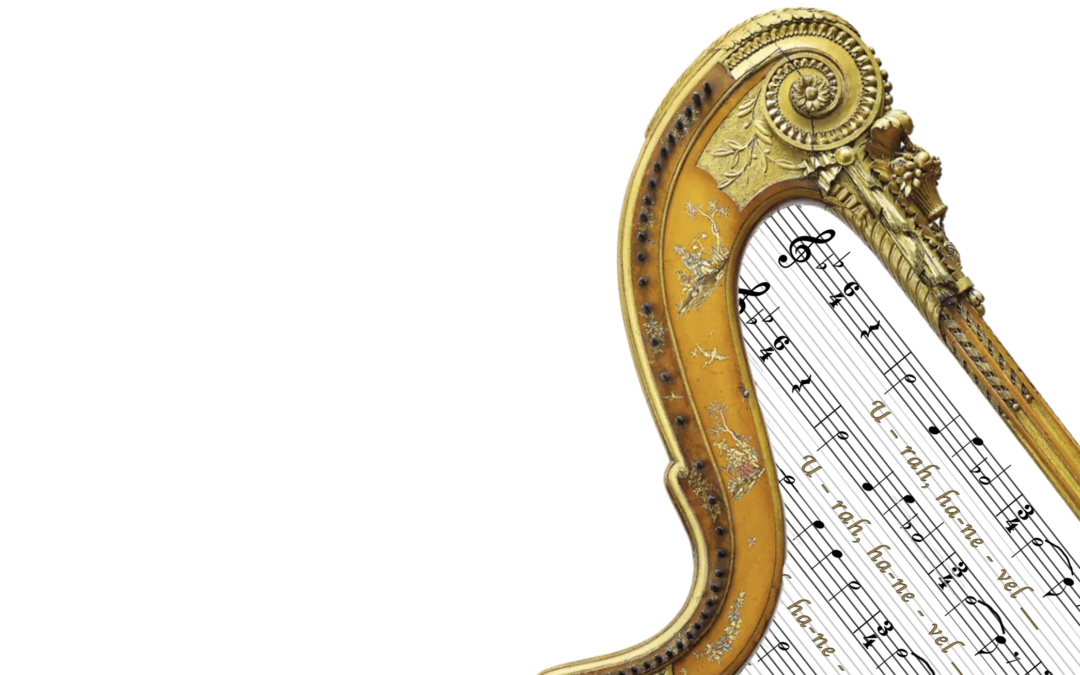There is nothing in Leicester like the Bach Choir. For over 90 years, they have been putting on wonderful concerts, singing the music they like. And the music they like, just happens to include the most difficult pieces in the classical repertoire.
In this concert we had the Chichester Psalms, an incredibly complex piece, full of sudden rhythmic changes (7/4, 6/4, 5/4, 5/8…). I love how it starts, with a big minor seventh jump (Bernstein liked that interval, you may remember the beginning of ’Somewhere’, from ‘West Side Story’), that feels like the singing equivalent of a circus jump. The choir was accompanied by an organ, a busy percussionist, and a harp. The child soloist in the second movement sang his part with a hushed tone and the sorrowful lyricism we often find in church choral music — he is a chorister in Leicester Cathedral — without having to strain his vocal cords to make himself heard, as happens when those poor boys are asked to sing that piece with a big orchestra behind them and a big classical auditorium in front of them.
In his introductory speech, the conductor mentioned the value of Bernstein’s music despite its perceived superficiality. I don’t see any superficiality in Bernstein, as, in my view, superficiality implies a degree of being fake, of writing notes like a hack. Bernstein, despite all his multiple flaws, even despite his occasional vulgarity, was always a sincere musician, and that piece reflected, as sincerely as he could manage, his own struggles with the idea of a divinity. And yes, Bernstein could write sentimental music —the second movement of the piece could be called sentimental — but in his case the sentiment, the sweetness, is sincerely felt, never faked, never used for cheap effects. Bernstein writes sweet tunes in the same way that Mahler wrote popular dance and trumpet tunes in his symphonies; with themes that reflect the music they grew up with, the music that ended up forming part of their internal musical landscape.
The three main pieces in the concert, all of them religious in nature, reflected how their composers tried to find a way to express their personal relationship with the divine through music. Angrily and sweetly, in the case of Bernstein, and severely and reflectively in the case of Louis Vierne with his Messe Solennelle Op 16. Vierne, who was known mostly as an organist, is rarely played today. The mass, premiered at the beginning of the 20th century, eskews any hints of the modern trends that were starting to be present at that time, and relies on the antiphonal method of confronting the choir with a powerful organ, dialoguing with the voices as an equal. It’s interesting to know that the original score is for two organs (they have two organs in the church of the Saint Suplice in Paris where Vierne worked). The organ they used in this concert, played by Simon Hogan, had the right sound, big and imposing. I particularly liked the Benedictus, where the interaction between the choir and the organ, sometimes imploring, sometimes stretching out to the highest ranges, is most successful.
And if Bernstein, when writing music about the divine, kept looking inside himself, to his own conflicted sentiments, and if Vierne looked instead above him, to the unreachable heavens, Janacek’s gaze was safely bound to what he had around him, to his land, to the people living with him in Moravia. ‘Otce Nas’ puts music to the words of the Lord’s prayer and was composed to illustrate a ‘tableau vivant’, a series of scenes with people in static poses. It was staged in Brno with amateur actors as a funding event for a local church. The piece has a popular charm, as is common with Janacek, but in his own personal way, without having to quote actual popular tunes (as Bartok or Kodaly would do later). Janacek did not have to look at the heavens to find God; he looked around him instead, and he found something there that was personal, humane, and as valid as what the dreamy Bernstein found on the broken rhythms of his psalms or as valid as what Vierne found in his antiphonal complexities.
The piece was not a success when it was premiered in a concert hall, maybe because of its descriptive nature (like the cries for bread by the choir), and maybe because of its themes, often stark and unsentimental. I liked its rough charm, its earthy character, so different from the other two pieces. The original score includes a part for a tenor soloist but, in this concert, they used a soprano from the choir instead. I was surprised to hear how well she sounded, with a deep, creamy voice, an imposing lower register, and clean, sharp high notes. Despite being from Carlisle, she sounded Eastern European, with her imposing, steely voice.
When the concert ended, I was left thinking about the sound that the choir and the organ produced. The organ bass resonated loudly, the sound bouncing from the curved wall at the back of the building. Buildings, with their resonance, are also an instrument in choral and organ concerts; we could never get that deep sound when playing a recording at home. And that’s the beauty of having the Leicester Bach choir with us: the sound, the repertoire, the shared concentration of being in a live concert. Let’s hope this group of people will continue singing the music they like: difficult, uncompromising, compelling music.
Dr Josep Vilanova June 2022

